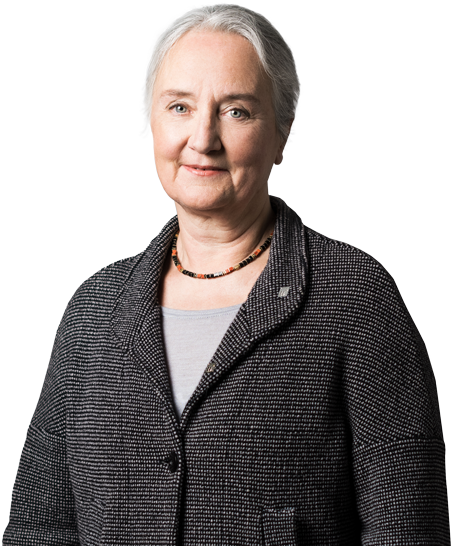
“The University of Bern has set itself the goal of becoming a climate-neutral institution by 2025 in all areas in which it has a direct influence.”
Executive Board
Taking our quality culture to the next level – together
The University of Bern has opted to use the current accreditation process of the University’s quality assurance system as an opportunity to take its quality culture to the next level in a broad-based process.
By Prof. Dr. Silvia Schroer, Vice-Rector for Quality
By the end of 2021, the University of Bern will have completed its first institutional accreditation pursuant to the Higher Education Act (HFKG). The HFKG requires institutions of higher education to have their own quality assurance systems in order to firmly establish the high quality of the services they provide and refine this on an ongoing basis. Obtaining institutional accreditation allows the University to prove that it has an excellent quality assurance system in place. The quality of the University’s teaching, research, continuing education and services plays a central role in this. The process also examines whether the institution has sustainable planning and leadership structures, members of the University have adequate participation rights, and whether the system effectively supports the achievement of equal opportunity and sustainable development goals.
The University of Bern’s 18-month accreditation process was officially launched on May 19, 2020, in the presence of Rector Christian Leumann, Vice-Rector Silvia Schroer, project managers Claudia Saalfrank and Jürg Friedli, as well as the responsible representatives of the AAQ (Agency of Accreditation and Quality Assurance).
Inspirational process
During the first self-assessment portion of the process, the University explained how its quality assurance and development system (QAD) is structured and works. To ensure the broadest possible support, this process involved the University’s intermediate staff and students as well as various university offices and faculty cultures. Participants experienced the collaborative approach employed when preparing this self-assessment report as an inspirational process, one that intensified discussions on QAD-related issues within the University and also resulted in many new suggestions that went beyond the scope of the report’s preparation.
The submission of the self-assessment report in December 2020 was an important stage in the University of Bern’s journey toward institutional accreditation. The University has placed the utmost importance not only on the report, but also on working toward an overarching culture of quality. Accreditation is not an end in itself, rather a recurring challenge that helps us make decisive improvements to our quality assurance and development system (QAD).
The explanatory video shows how quality assurance works at the University of Bern (in german).
Comprehensively informed
Quality assurance and development should be viewed as an ongoing process that continues even after accreditation has been granted. The QAD brochure published in the spring of 2020 (www.links.unibe.ch/qse_broschuere) aims to explain how this is happening at our university as well as which structures, committees and strategies are contributing to the effort. A communication concept was adopted for the University’s QAD system to ensure that everybody associated with the University is fully and adequately informed about the measures, procedures and results of the University’s QAD system and to get them involved in its development.
Thirty-year commitment to equality
The University of Bern celebrated the 30th anniversary of its Office for Gender Equality: In 1990, the University of Bern was the first higher education institution in Switzerland to create an office for the advancement of women. Looking back at three decades of gender equality work, it becomes evident that the University of Bern has always been committed to gender equality issues. This is also the case in 2020, a year that featured the adoption and financing of equality plans at the faculties and centers, that now also encompass additional aspects of equal opportunity (keyword: diversity).
Did you know?
"In 2020, the University Executive Board adopted a traffic light system for business trips which determines for which European destinations the train must be chosen (green) and for which destinations the train has priority over air travel (yellow)."
Climate neutral by 2025
The University of Bern has set itself the goal of becoming a climate-neutral institution by 2025 in all areas in which it has a direct influence. Together with an external consulting firm, an assessment was conducted to determine the University’s status with regard to carbon emissions and a carbon balance sheet was prepared for 2019 as the reference year. Existing recommendations for business trips aimed at helping University employees make their business trips more sustainable have been supplemented by a traffic light system for determining which European destinations need to be visited by train or for which destinations train travel should be prioritized over air travel.